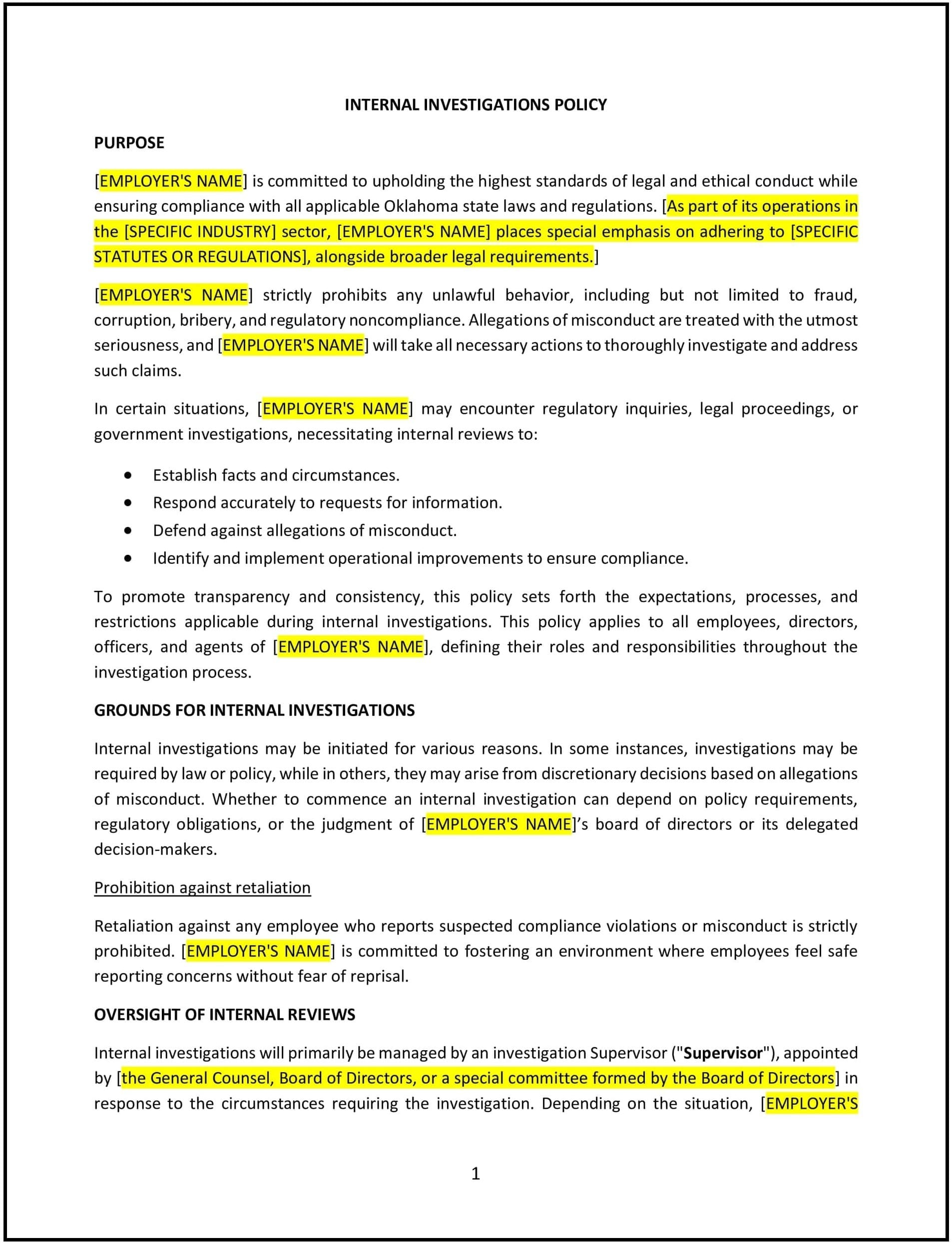Internal investigations policy (Oklahoma): Free template
Got contracts to review? While you're here for policies, let Cobrief make contract review effortless—start your free review now.

Customize this template for free
Internal investigations policy (Oklahoma)
This internal investigations policy is designed to help Oklahoma businesses establish clear procedures for handling workplace investigations related to misconduct, policy violations, or legal concerns. The policy outlines investigation protocols, confidentiality measures, and employee rights to ensure fair and consistent handling of workplace issues.
By implementing this policy, businesses can maintain workplace integrity, mitigate legal risks, and support compliance with regulatory and ethical standards.
How to use this internal investigations policy (Oklahoma)
- Define investigation scope: Specify the types of issues covered, such as harassment, fraud, policy violations, or ethical concerns.
- Establish reporting procedures: Provide a process for employees to report concerns through HR, managers, or anonymous reporting channels.
- Assign investigation roles: Identify who is responsible for conducting investigations, such as HR, compliance officers, or external legal counsel.
- Outline investigation steps: Detail the process for gathering evidence, interviewing witnesses, and maintaining impartiality.
- Ensure confidentiality: Protect the privacy of individuals involved while allowing a thorough investigation.
- Establish resolution procedures: Determine how findings will be documented, reported, and addressed through corrective actions.
- Review regularly: Assess the policy periodically to ensure alignment with best practices and Oklahoma-specific employment laws.
Benefits of using this internal investigations policy (Oklahoma)
Implementing this policy provides several advantages for Oklahoma businesses:
- Promotes workplace integrity: Encourages a culture of accountability and ethical behavior.
- Reduces legal risks: Helps businesses follow due process and regulatory requirements.
- Ensures fair treatment: Provides consistent guidelines for handling investigations.
- Protects confidentiality: Limits exposure of sensitive information to authorized personnel.
- Reflects Oklahoma-specific workplace considerations: Aligns with state employment laws and industry practices.
Tips for using this internal investigations policy (Oklahoma)
- Train managers and HR personnel: Ensure they understand investigative best practices and legal considerations.
- Maintain impartiality: Avoid conflicts of interest by assigning neutral investigators.
- Keep detailed records: Document all findings, witness statements, and corrective actions.
- Communicate investigation outcomes appropriately: Share findings with relevant stakeholders while maintaining confidentiality.
- Adjust policies as needed: Update investigation protocols based on new laws and workplace needs.